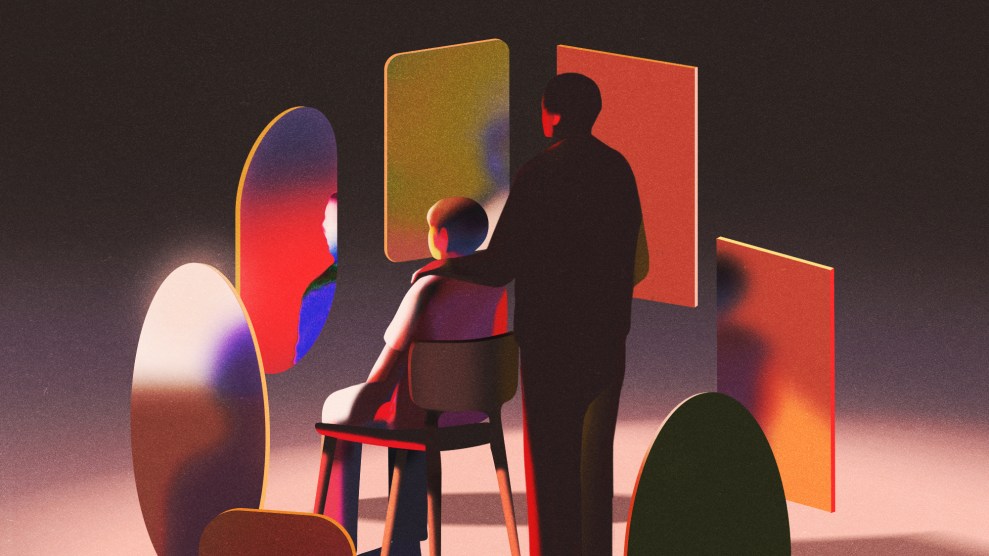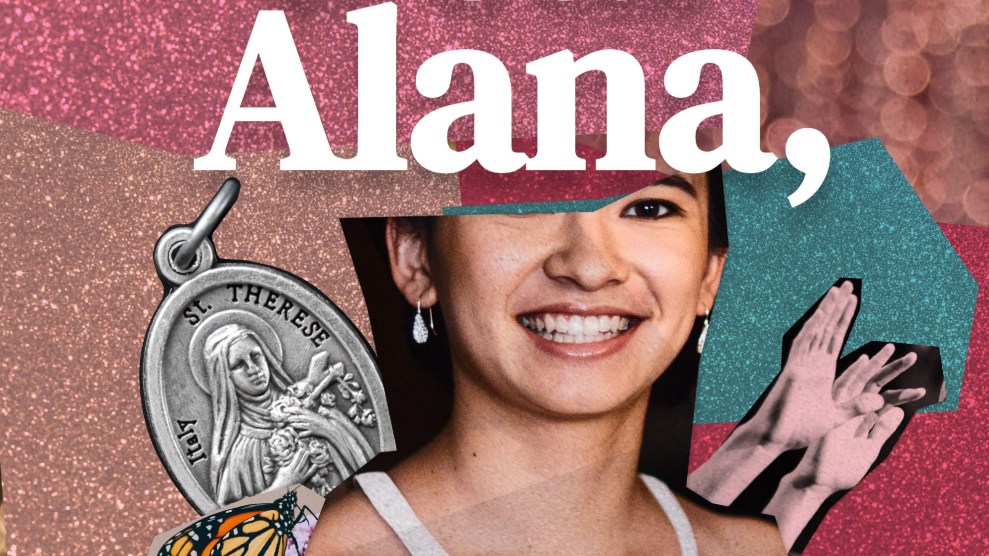Growing up, Myles Markham always felt like an outsider. Markham was multiracial in small, mostly white Florida towns. And they were queer. “I was swimming in water that told me that who I was, what I was, needed to change if I wanted to be safe,” they say. “I really believed, ‘I am a problem. I need to be fixed.’”
As a teen, a friend got them interested in evangelical Christianity, which seemed to offer the promise of transformation. They joined a church youth group and began studying the Bible. Soon after, Markham found an online forum for a ministry that supports “those affected by unwanted homosexuality.” Markham didn’t identify as transgender at the time, but to their mentors in the conversion therapy program, Markham says, sexuality was inextricable from gender identity. “A woman being attracted to women—she was confused about her gender identity, confused about what it means to be a godly woman,” they explain. “And so what they end up doing, therapeutically, is attempting to police and reform your gender presentation.”
Markham’s experience is far from unique. As professional and legal objections to conversion therapy grew in the 2000s, such “change efforts” were migrated from the clinical realm into religious settings. The vast majority of people who have gone through conversion therapy received it from a religious leader, according to the UCLA School of Law’s Williams Institute. The practice remains shrouded in secrecy, says Simon Kent Fung, a conversion therapy survivor and creator of an award-winning podcast on the subject, Dear Alana. “In religious settings, homosexuality is not just a pathology, but a spiritual brokenness,” he explains. “Conversion therapy today is psychologically manipulative.”
Markham’s time in the ministry’s forums made their emotional state even more fragile. They started experiencing panic attacks almost every day. They would be reading or riding the bus and then be overcome by waves of nausea, a racing heartbeat, and the sense of paralysis. “Something was happening to me internally, where I was [feeling] I was about to die,” they remember. At night, they had terrors of demons suffocating or drowning them.
The worse Markham’s anxiety got, the more they became convinced that only God could save them. They enrolled at a small Christian college and found an outside church that offered group therapy. Other members of the group were there to overcome a variety of issues: eating disorders, alcoholism, or depression. “I was there talking about ‘gay,’” Markham recalls bitterly. The counselor, in training to become a licensed practitioner, told Markham to “write out every single same-sex attraction or gender confusion–related thought, dream, action, behavior that had ever materialized in my life per my memory, and describe the way that it hurt me, it hurt God, and hurt other people.” When they sought help from college administrators, they required Markham to attend biweekly sessions with a women’s chaplain who counseled them on “biblical womanhood” and made them read a book called God’s Little Princess.
At the end of their senior year, Markham received a class assignment to create a plan to convert an “unreached group” to Christianity. They chose LGBTQ people. Conducting interviews with queer students and community members, Markham says, was the first time in their life they developed relationships with out, self-affirming queer and trans people.
When Markham tried to share their feelings, their classmates immediately ostracized them. Markham was banned from participating in school groups, forbidden from leading church services, and pressured to find new housing.
The hostility only deepened their resolve to live an openly queer life. After graduating, Markham took a job living and working at the Equality House, the rainbow-painted protest house across the street from the notoriously anti-LGBTQ Westboro Baptist Church in Topeka, Kansas. They started organizing to pass discrimination protections and prevent youth suicides and met with countless LGBTQ community members. Everything immediately changed. “The night terrors were the first thing that ended,” they say. The panic attacks faded too, eventually. “I was finally in an environment that just allowed me to be who I was.”
They also found a supportive therapist. “It wasn’t just the tools I developed in therapy that [resulted in] this constitutional shift,” they say. “It was once I was comfortable being who I am and being able to share that with other people, and not having to hide, ignore it, or try to diminish it.”
Now, some 10 years later, Markham feels as though the torments of the past are finally put to rest. “I went from a place of constant, albeit quiet, torment into one of vitality,” Markham remembers. “I was able to wake up grateful for my life. I wanted to be alive, and that was something that took me most of my life at that point to be able to say with sincerity.”














